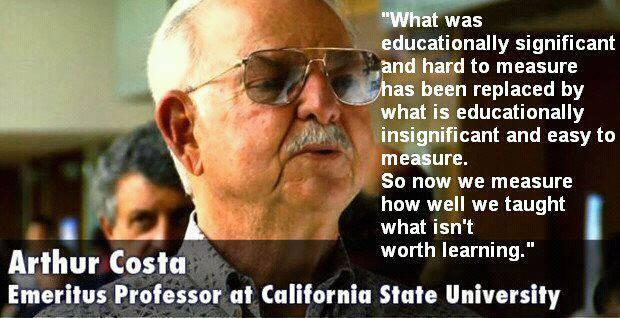Educators are a friendly bunch and there were great moments when the people around breakout tables
added to and complimented what the Presenters had to say and do.
Facilitators
Facilitators like Mark Osborne (http://theopensourceschool.blogspot.co.nz/ http://osborne.kiwi.nz/) and Amanda Signal (http://heymilly.blogspot.co.nz/) had alot of involvement from the teachers attending their workshops.
In Mark's workshop he used a collection of what research says improves learning. I like the simplicity of this idea with the effect size stripped away but how to be effective left.
 My "to do" from Mark's workshop is to make these visible somewhere in my learning environment and to try to make this a "theory in action" rather than an "espoused theory."
My "to do" from Mark's workshop is to make these visible somewhere in my learning environment and to try to make this a "theory in action" rather than an "espoused theory."Amanda was working with a large group of teachers using the animation programme scratch. When I came into the room every one was hard at learning and when I consider the collection of the effective above Amanda's workshop was a great example of many of these theories in action.
- Working at their own pace
- Creating and using worked examples
- Learning co-operatively
- Teaching each other skills
- Guided and independent practice etc
I have had and seen alot of super learning using Scratch and Amanda's wasn't the only session looking at scratch unfortunately I missed Bob Bottomley's one but am pleased to see people getting in behind the kind of learning Scratch promotes, at Ulearn.
My "to do" from Amanda's workshop is to work with scratchers again at my school this term and to connect with the other educators scratching at learning.
- Bob Botto




